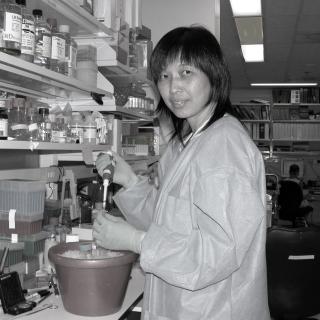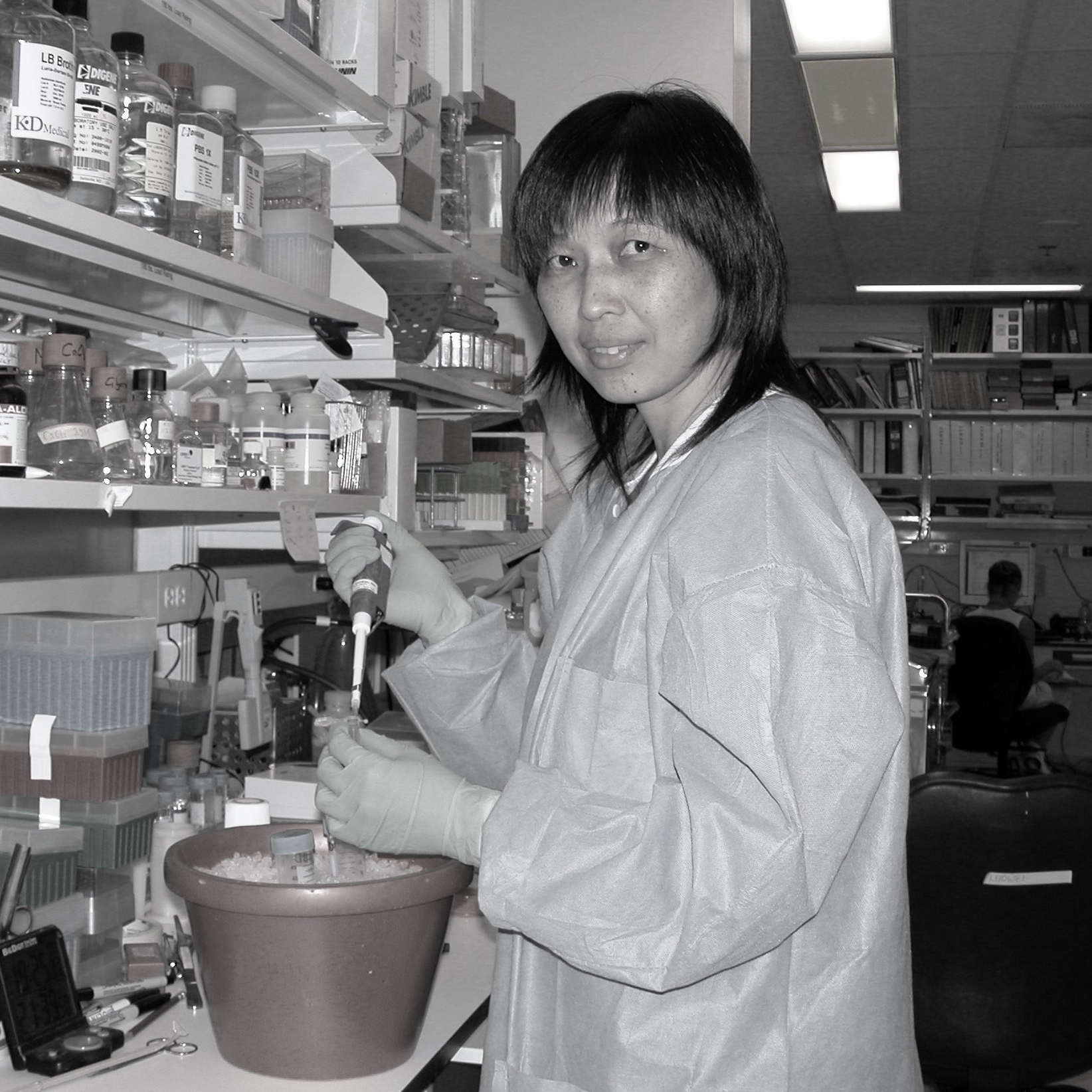
Luowei Li, Ph.D.
- Center for Cancer Research
- National Cancer Institute
- Building 37, Room 4060
- Bethesda, MD 20892
- 240-760-6799
- lilu@mail.nih.gov
RESEARCH SUMMARY
Dr. Li has focused her research on understanding the role of several major signal transduction pathways on epidermal proliferation, differentiation, and transformation. She is also interested in exploring the interaction between tumor cells and their microenvironment. Recently, she has been evaluating pathway specific agents for cancer therapy.Areas of Expertise

Luowei Li, Ph.D.
Research
Dr. Li has focused her research on understanding the role of several major signal transduction pathways on epidermal proliferation, differentiation, and transformation. She is also interested in exploring the interaction between tumor cells and their microenvironment. Recently, she has been evaluating pathway specific agents for cancer therapy.
Publications
Direct quantification of polo-like kinase 1 activity in cells and tissues using a highly sensitive and specific ELISA assay
CLIC4 mediates and is required for Ca2+-induced keratinocyte differentiation
Reduced migration, altered matrix and enhanced TGFbeta1 signaling are signatures of mouse keratinocytes lacking Sdc1
RasGRP3 contributes to formation and maintenance of the prostate cancer phenotype
The skin cancer chemotherapeutic agent ingenol-3-angelate (PEP005) is a substrate for the epidermal multidrug transporter (ABCB1) and targets tumor vasculature
Biography

Luowei Li, Ph.D.
Dr. Li received her Bachelor Degree in Biophysics from Fudan University in Shanghai, China. She was an instructor for Department of Biotechnology in Tsinghua University, Beijing, China before enrolled in a joint graduate program between W. Alton Jones Science Center in Lake Placid, NY and Tsinghua University. In 1993, she received her PhD in Biochemistry from a joint program between Clarkson University, Potsdam, New York, and the W. Alton Jones Cell Science Center. Her PhD research was focused on the contribution of calcium homeostasis to the terminal differentiation of keratinocytes. She was a postdoctoral fellow in the Laboratory of Cellular Carcinogenesis and Tumor Promotion in National Cancer Institute and later promoted to Staff Scientist under the direction of Dr. Stuart H. Yuspa.